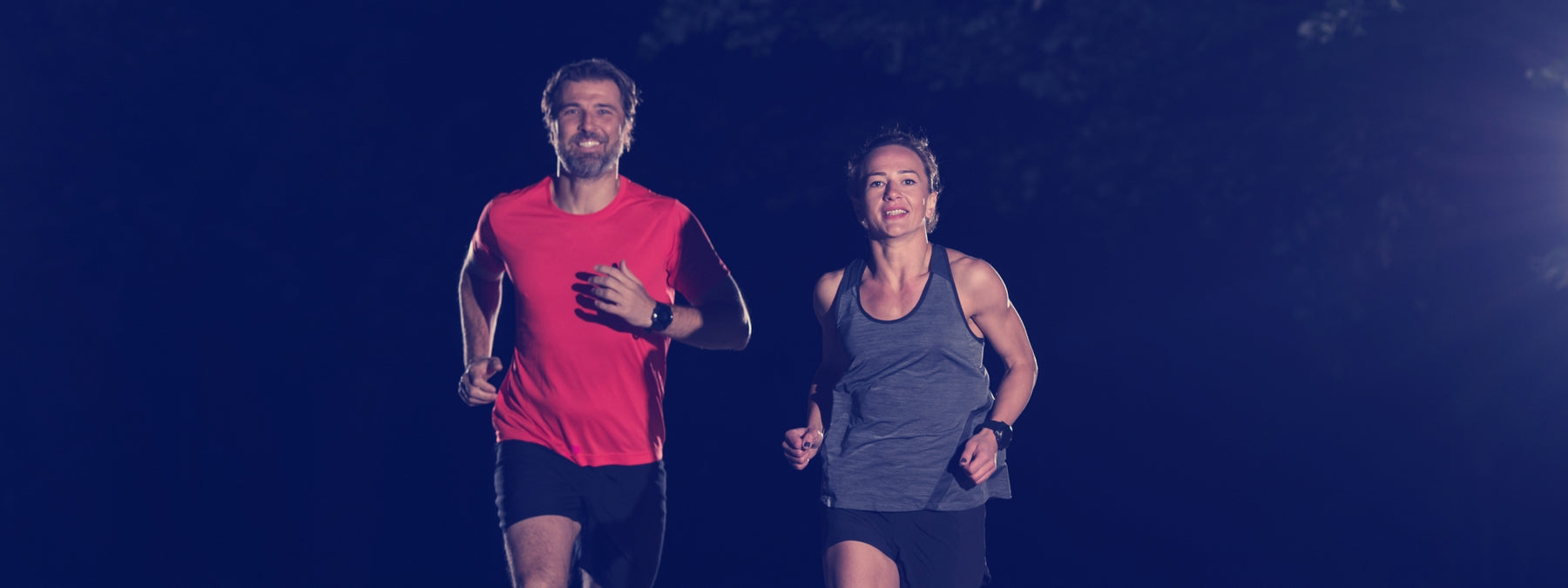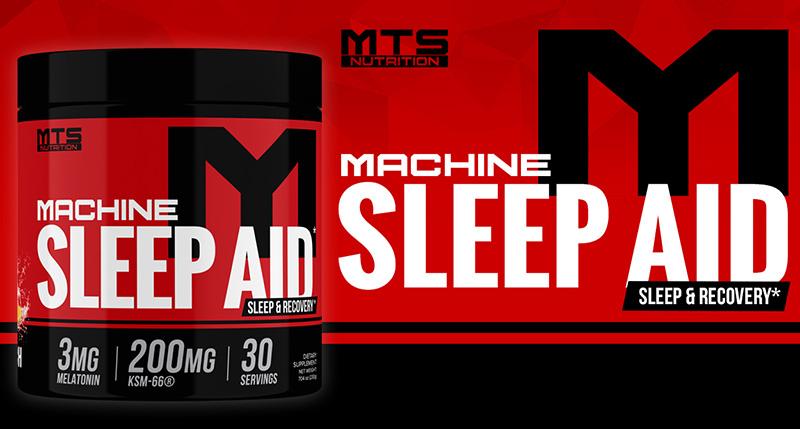
New Meta-Analysis: Late Workouts Equal Better Sleep
We all have those days when our lives are a complete mess. We begin our day with a solid plan of attack, and before it’s time for lunch, the whole plan is in shambles. And to make matters just a bit worse, you miss your daily workout (which typically serves as your stress-reliever for the day).
While you might be tempted to cram in a quick nighttime workout, you’ve tended to veer away from smashing the iron (or any other form of high-intensity exercise) after dark due to potential sleep disruptions.
Related - 25 Tips for a Better Night's Sleep
But, new research tells a different story.
In fact, evening exercise may actually improve your sleep quality.
Let’s dig into the newest study and see what it has to say.
The Study
Published in the journal Sports Medicine, researchers conducted a meta-analysis where they sorted through 11,717 references and, after weeding out the ones that did not fit the selection criteria, ended up with 23 different studies assessing the effects of evening exercise vs a no-exercise control on a variety of sleep parameters. [1]
FYI, bouts of evening exercise took place anywhere between 7.2 minutes all the way up to four hours prior to bedtime, which (to be honest) is a fairly large gap.
Regarding the inclusion criteria used by the team of researchers, the meta-analysis included studies conducted in otherwise healthy adults who did not present with any severe medical conditions or known sleep disorders.
For more on the inclusion criteria, see the following chart from the study: [1]
The Results
Compared to those that did not exercise at least 4 hours prior to sleep, individuals who trained prior to sleep experienced significantly greater rapid eye movement (REM) and slow-wave (“deep”) sleep, while spending less time in stage 1 sleep. [1]
When you sleep, you pass through several stages, each one becoming progressively deeper. So based on these results, it appears that evening exercises spent less time in light sleep and more time in deep sleep.
Other interesting findings from the meta-analysis documented by researchers were that individuals who went to sleep with a higher temperature at bedtime were associated with poorer sleep efficiency, and they were more likely to wake after the onset of sleep. And, in case you were wondering, “sleep efficiency” refers to the ratio of total sleep time and time in bed expressed as a percentage.
Researchers also noted that there was no significant difference in total sleep time between subjects who exercised in the morning and those who exercised in the evening. But, they did note that individuals who exercise did tend to have greater total sleep time than those who did not exercise during the day. [1]
This is particularly interesting to note as sleep researchers have found that total sleep time has a direct impact on daytime sleepiness. [2]
The only time researchers did note that evening exercise impaired sleep metrics (reduced sleep efficiency and slightly increased the onset of sleep) occurred when subjects trained intensely within an hour of bedtime. [1]
Researchers theorize that reduced sleep efficiency could be due to incomplete cardiovascular recovery, leading to an increased heart rate and stunted parasympathetic activity at bedtime when exercising intensely within an hour of bedtime.
The authors concluded:
“Overall, the studies reviewed here do not support the hypothesis that evening exercise negatively affects sleep, in fact rather the opposite. However, sleep-onset latency, total sleep time, and SE might be impaired after vigorous exercise ending ≤ 1 h before bedtime.” [1]
Follow-Up Research
Following the publication of the recent 2018 meta-analysis, another study assessing the potential impact of performing high-intensity exercise a few hours prior to bed appeared in the journal Experimental Physiology.
11 inactive, middle-aged men (mean age 49 ± 5 years) participated in the study. Subjects were non-smokers and regularly completed less than 150 minutes of moderate-intensity exercise per week. Subjects were also screened for any current conditions or medications which impacted sleep quantity or quality.
Prior to completing any of the three exercise trials, researchers tracked the subjects regular sleep habits for two nights to account for possible sleep apnoea and track each subject’s normal sleep stages and arousals.
Following baseline measurements, the subjects then completed three separate exercise trials, each lasting three days, in a randomized fashion.
Each subject performed 30 minutes of high-intensity interval exercise (HIIE) rotating between 60 seconds of maximum effort and 240 seconds (4 minutes) of 50% VO2 Max at one of the following times of day:
- Morning (6 a.m. to 7 a.m.)
- Afternoon (2 p.m. to 4 p.m.)
- Evening (7 p.m. to 9 p.m.)
Each 3-day trial was separated by a minimum of 5 days to allow for adequate recovery.
In addition to measuring the effects of high-intensity interval training on sleep quality and quantity, researchers also tracked ratings of perceived appetite and post-exercise energy intake as well as changes in plasma concentrations of appetite-related hormones, such as ghrelin (the “hunger” hormone).
At the conclusion of the trial, researchers noted that there were no significant differences between the time of day the men exercised and its impact on the following sleep markers:
- Sleep onset latency
- Time in bed
- Total sleep time,
- Sleep efficiency
- Wake after sleep onset
- Arousal index, or
- Stage 1 or Stage 2 sleep
However, when individuals exercised in the morning, researchers noted that the men spent more time in stage 3 sleep than before the trial started (i.e. without exercise).
In regards to exercise’s impact on perceived appetite and the hunger hormone ghrelin, researchers documented a reduction in ghrelin concentrations.
However, subjects didn't report any significant changes in their hunger levels or energy intake, which is surprising as with decreased ghrelin you would expect the individuals to be less hungry.
Researchers postulated that the subjects may have needed to exercise more regularly to notice a significant change in appetite. [3]
Closing out the study, researchers stated:
“In summary, this study does not support the recommendation of avoidance of early evening HIIE due to its effect on sleep. Rather this study shows HIIE can be safely performed in the early evening without subsequent detriment to sleep duration or arousal index.
Also, HIIE performed in the afternoon and early evening are likely to be associated with greater performance output; therefore, greater reductions in orexigenic signals. As such, collectively these observations support the early evening as a viable time-of-day for individuals to engage in HIIE should this be a preferential time-of-day.” [3]
Takeaway
Simply put, the current body of research does not support the idea that exercising after dark disrupts sleep. There is a limited amount of evidence suggesting that if you train vigorously within an hour of bedtime it may impact sleep quality, but more research is needed to solidify this notion.
At the end of the day, exercise (regardless of time of day) improves an individual’s sleep quality and quantity. If you can only train late at night, go for it with peace of mind knowing that it won’t necessarily make you have a harder time falling asleep. And, as an added bonus, training later may allow you to have greater performance output.
References
1) Stutz, J., Eiholzer, R., & Spengler, C. M. (2019). Effects of Evening Exercise on Sleep in Healthy Participants: A Systematic Review and Meta-Analysis. Sports Medicine, 49(2), 269–287. https://doi.org/10.1007/s40279-018-1015-0
2) Carskadon MA, Dement WC. Nocturnal determinants of daytime sleepiness. Sleep. 1982;5(Suppl 2):S73–81Larsen, P. , Marino, F. , Melehan, K. , Guelfi, K. J.,
3) Duffield, R. and Skein, M. (2019), Evening high‐intensity interval exercise does not disrupt sleep or alter energy intake despite changes in acylated ghrelin in middle‐aged men. Exp Physiol. Accepted Author Manuscript. doi:10.1113/EP087455


Leave a comment